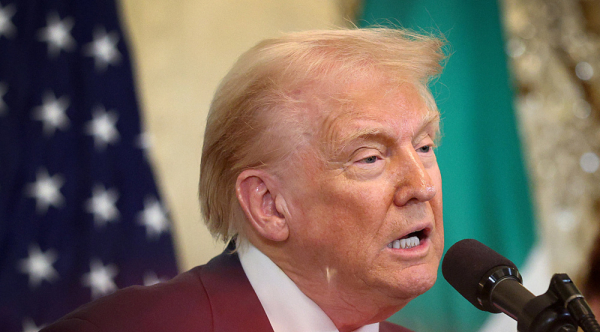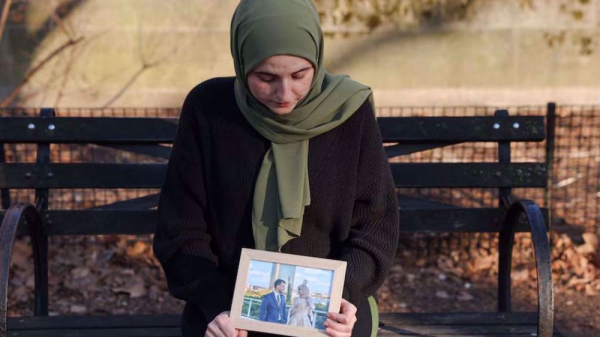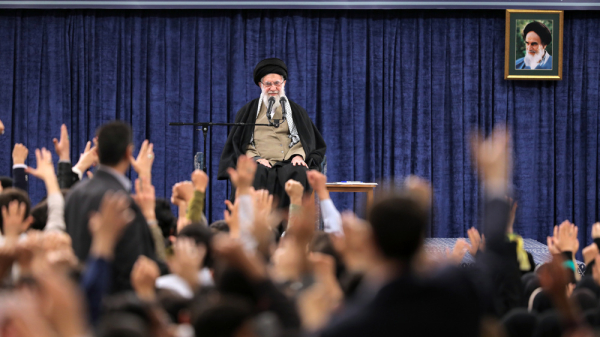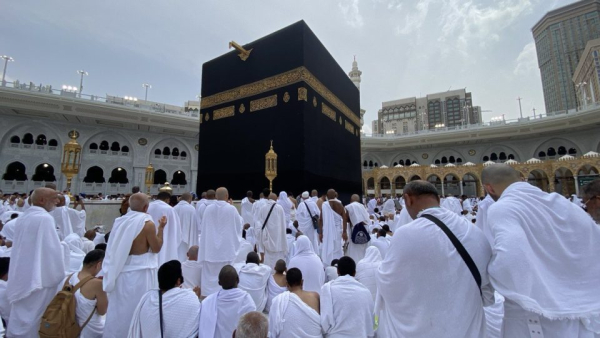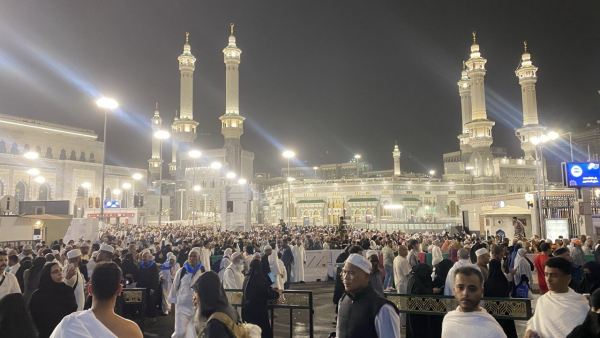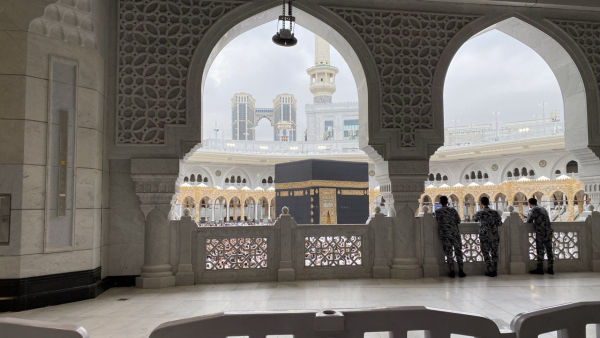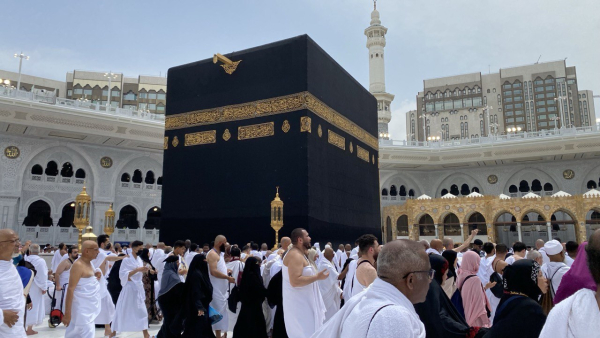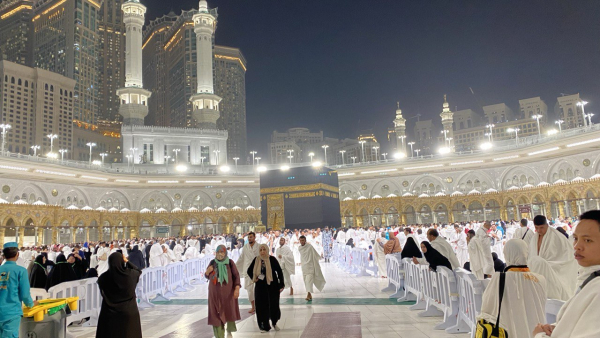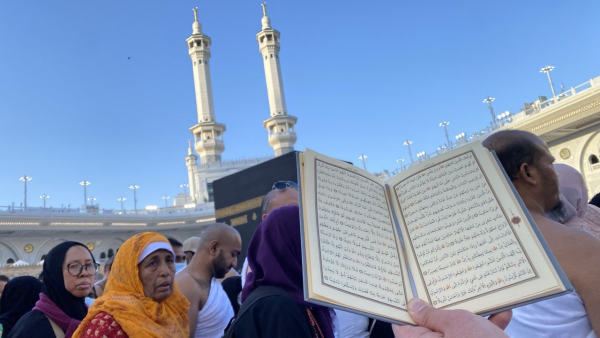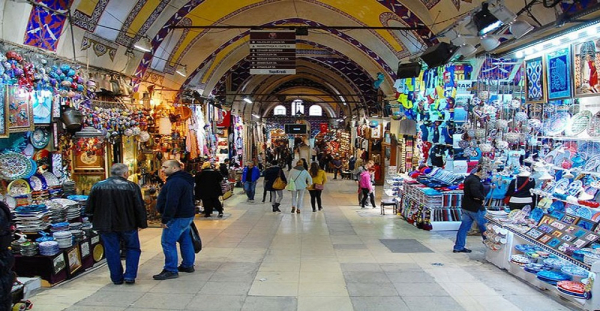zarezadeh
‘Nobody is expelling any Palestinians’: Trump walks back on plot to ethnically cleanse Gaza after backlash
In his latest statement about the war in Gaza, US President Donald Trump seems to back down on his previous plan to forcibly relocate the population of the Gaza Strip, claiming, “Nobody is expelling any Palestinians.”
The statement was made in response to a reporter's question about the ethnic cleansing plan during a meeting with Irish Prime Minister Micheál Martin on Wednesday.
It was embraced by Hamas, with the resistance group's spokesman Hazem Qassem stating, “If President Trump’s statements represent a reversal of the plan of displacing the people of Gaza, they are welcomed.”
“We call for this stance to be followed by holding the occupation accountable for implementing all ceasefire agreements,” Qassem added.
Trump first unveiled his plan to ethnically cleanse Gaza of its native population in February.
Under the plan, the people of Gaza will be forcibly relocated to Jordan and Egypt, regardless of the consent of either the Palestinians or the governments of Jordan and Egypt.
Since the beginning of the Israeli genocide in Gaza, many Israeli officials have also been calling for the ethnic cleansing of Gaza, including ministers of the current Israeli administration.
Most recently, Israeli Minister Idit Silman reiterated calls for expelling the people of Gaza in an interview on Tuesday, stating the “only solution for the Gaza Strip is to remove its Palestinian population.”
The plan to ethnically cleanse Gaza has been widely condemned by human rights groups and governments around the world, including even some of Israel’s allies such as Germany.
Press TV’s website
Wife of Palestinian activist Mahmoud Khalil says he is ‘fighting for his people’
The spouse of Mahmoud Khalil, Palestinian student-activist and US Green Card holder, says that her husband is standing up for his people.
Noor Abdalla, a US citizen and a practicing dentist, in an interview with Reuters on Tuesday, said that her husband's focus was on supporting his community through advocacy and in more direct ways.
"Mahmoud is Palestinian and he's always been interested in Palestinian politics," she said, adding, "He's standing up for his people, he's fighting for his people."
Abdalla, who is eight months pregnant, described the harrowing moment when Immigration and Customs Enforcement (ICE) agents handcuffed her husband in the lobby of their university-owned apartment in Manhattan on Saturday.
As a legal permanent resident of the US, surely Khalil did not have to worry about that, she said she recalled telling him. “I didn’t take him seriously. Clearly I was naive,” she said.
Khalil arrived in the United States on a student visa in 2022 and obtained his permanent residency green card last year.
Despite the outpouring of support from peers and faculty, his wife expressed frustration at the lack of assistance from Columbia's administration. “No one from Columbia has contacted me to offer help.”
Khalil, a recent Colombia graduate and a Syrian-born Palestinian refugee, was detained on Saturday for his involvement in leading solidarity protests supporting Palestinians against Israel's genocide in Gaza.
His activism, which includes negotiating with university officials during protests advocating for Palestinian rights, has put him at the center of a political storm.
On Sunday, the Trump administration transferred Khalil from a US Immigration and Customs Enforcement jail in Elizabeth, New Jersey, near Manhattan, to a jail in rural Jena, Louisiana, about 2,000 kilometers (1,200 miles) away.
The following day, US District Judge Jesse Furman temporarily blocked Khalil's deportation. By Wednesday, the judge had formalized the ban in a written order after a hearing in Manhattan's federal court, granting himself additional time to evaluate the constitutionality of the student's arrest.
“Mr Khalil was identified, targeted, detained and is being processed for deportation on account of his advocacy for Palestinian rights,” Khalil’s lawyer Ramzi Kassem said in court on Wednesday.
The lawyers contend that Khalil's free speech rights have been violated, a position that resonates with many who believe that dissent should not come with the threat of deportation.
Hundreds of people rallied outside the New York City courtroom during the hearing to demand Khalil’s release. “Release Mahmoud Khalil now!” they chanted.
The situation has garnered significant attention, with support pouring in from various communities, including a rally held by Jewish faculty at Columbia University who voiced their opposition to Khalil's deportation. “Jews say no to deportations,” they chanted.
Following the detention of Khalil, US President Donald Trump declared it was "the first of many to come," labeling Khalil a “radical foreign pro-Hamas student” without providing any evidence.
He emphasized that his administration would adopt a strict stance against any pro-Palestinian activities within American universities.
Secretary of State Marco Rubio echoed Trump’s sayings, suggesting potential visa and green card revocations for individuals deemed supporters of Palestinian resistance group Hamas.
Neither Rubio nor the Department of Homeland Security offered any specifics on how Khalil's activism at Columbia University, where he openly acted as a student negotiator with school officials, constituted support for Hamas.
Press TV’s website
Trump’s call for talks with Iran ‘deception’: Ayatollah Khamenei
Leader of the Islamic Revolution Ayatollah Seyyed Ali Khamenei says a call by US President Donald Trump for negotiations with Iran is nothing but an attempt to "deceive the world public opinion" and portray the Islamic Republic as the party not willing to give diplomacy another chance.
“We sat down for years and negotiated. This same person threw off the table and tore apart the concluded, finalized, and signed negotiations,” Ayatollah Khamenei said during an address to a gathering of students in Tehran on Wednesday.
“When we know he doesn’t honor [agreements], what is the point of negotiating?” the Leader asked. “Therefore, calls for negotiation and talks of negotiation are meant to deceive the global public opinion.”
The Leader said the Trump administration does not intend to remove the sanctions, and that negotiations will only worsen the pressure campaign as Washington will raise new demands.
“If the purpose of negotiations is to lift the sanctions, negotiating with this US administration will not remove the sanctions. It will make the sanctions even tighter and increase the pressure,” the Leader said.
‘US to lose more in case of war’
Responding to Western allegations that Tehran seeks nuclear weapons, the Leader reiterated that Iran does not want to build nuclear arms, adding that it could have done so by now if it had so chosen.
“It is said that ‘We won’t let Iran obtain nuclear weapons.’ Had we wanted to build nuclear weapons, America could not have stopped us. The fact that we don’t have nuclear weapons and are not pursuing them is because we ourselves don’t want them for specific reasons.”
Referring to US threats of military action against Iran, Ayatollah Khamenei warned that Iran is prepared to deliver a decisive response. The United States, he said, would suffer more in such a confrontation.
“In my view, this threat is irrational because war or military aggression is not a one-sided affair. Iran has the capability to retaliate, and it will certainly deliver a counterstrike if necessary,” he said. “I even believe that if the Americans or their agents make a wrong move, they will suffer more damage than anyone else.”
‘Sanctions losing effectiveness’
On the sanctions, the Leader said such measures are losing their effectiveness gradually as Iran has found ways to neutralize them.
“Over time, when sanctions persist globally, they gradually lose their impact. Even they (US officials) themselves admit this. They acknowledge that a sanctioned country can gradually find ways to neutralize sanctions and render them ineffective. We have discovered many such ways and have neutralized sanctions in many areas,” the Leader said.
However, Ayatollah Khamenei said that most of Iran’s economic challenges stem from internal negligence and mismanagement rather than external sanctions.
‘Resistance growing in power’
Ayatollah Khamenei also addressed the martyrdom of prominent resistance leaders in Lebanon, Palestine, and Iran over the past year, including Hezbollah leader Sayyed Hassan Nasrallah.
While acknowledging the losses felt by the Resistance Front, the Leader emphasized that these setbacks do not signify weakness or decline.
“Yes, these brothers were incredibly valuable individuals whose absence is undoubtedly a loss for us, there’s no doubt about that,” Ayatollah Khamenei stated.
“But today, despite their absence, we are stronger in some areas compared to last year on this very day. In other areas, we are at least as strong as before, if not stronger.”
He added that the loss of prominent figures does not mean retreat or weakness if two key factors remain intact: Having ideals and striving toward those ideals.
“If these two factors exist within a nation, then while the absence of such individuals may be a loss, it won’t disrupt the overall movement forward,” Ayatollah Khamenei said.
Press TV’s website
How have the Kaaba's curtain changed throughout history?
Anyone who has been on the Hajj pilgrimage has seen that the Holy House is covered with a cloth. This is also seen in pictures of the Kaaba, and we even see in very old photographs that a cloth has been thrown over the Kaaba. When did this happen?
Covering the Holy House has been a tradition for centuries. Not only can we see this in very old photographs, but we can also see this when we study history. Even a position called "the curtain keeper" of the Kaaba was created for this reason, and there were people who were responsible for maintaining, replacing, and changing the covering of the House of God.
As is clear from the narrations, it seems that the first people to cover the House of God with a cloth were Prophet Abraham and Prophet Ismail (peace be upon them). This is something that is clear from the hadiths of the pure Imams (a.s.), especially from the precious words of Imam Sadiq (a.s.).
Although some Sunni brothers believe that a person named Tubba or Asad Al-Hamiri was the first person to cover the Sacred House of Allah with a cloth, and of course they say that he put a door for the Kaaba. At the same time, some narrations state that the first person to cover the Kaaba was Hazrat Ismail (a.s.), and Tubba years later changed the covering of the Kaaba to a covering made of leather.
Has the type of cloth that covers the Kaaba changed throughout history?
Yes. As history shows, the Sacred House of Allah was covered with a cloth made of leather in the era before the advent of Islam and the mission of the Holy Prophet (s.a.w.s.); But the Messenger of God (peace be upon him and his family) changed this cloth and covered the Kaaba with a Yemeni cloth. After his death, the second and third caliphs covered the Kaaba with a thin, white Egyptian cloth called Qabati. Of course, some sources state that before the advent of Islam, the Kaaba was covered with this thin, white cloth.
In the second century AH, Hussein ibn Aftas, a Talebi, led a rebellion and took control of Mecca. After this capture, he entered the Kaaba and took possession of all the cloths there. Then he covered the Sacred House with a yellow and white silk cloth.
A few years later, when Ma'mun became the caliph, he was informed that the cloth on the Kaaba, which was red at that time, had become worn out. He ordered that a white silk cloth be sewn and installed on the Kaaba.
What are the cultural effects of Hajj?
This avoidance of hypocrisy and showing off and paying attention to the deity is also one of the important philosophies of Hajj.
That's right. One of the most important philosophies and wisdoms of Hajj is that it affects the morality and character of a person. Someone who was looking for hypocrisy and being seen in the eyes of people before Hajj, after Hajj, sees only God and seeks divine pleasure. Basically, the Ihram ceremony itself is a kind of ceremony that should completely distance a person from worldly attachments and attention to external and material privileges. Suddenly, during the Ihram ceremony, a person is freed from any kind of vain and worldly privileges that have no effect on his spirituality and, on the contrary, distance a person from spirituality, and this is one of the important philosophies of Hajj.
At the same time, while we are moving away from hypocrisy and attracting attention in the eyes of people, it is as if we are also establishing a bond with believers.
That's right. Muslims establish a bond of friendship during Hajj. Everyone appears with one voice, with the same appearance, and has a single slogan and goal. Important cultural exchanges take place during this ceremony, and all Muslims unite. This is why it is stated in narrations that one of the important effects of Hajj is the dissemination of the news and teachings of the Holy Prophet (peace and blessings of Allah be upon him) to all parts of the Islamic world.
Are there any conditions for performing Hajj and its effect on the forgiveness of sins?
Yes. As mentioned, a person must not have the intention of committing a sin after Hajj and his repentance must be genuine. As Imam Sadiq (AS) said: “Whoever performs Hajj without any kind of hypocrisy and showing off and only with the intention of seeking the pleasure of Allah, Allah Almighty will forgive his sins.” Note that when someone goes to Hajj for hypocrisy and showing off and intends to be honored by people by doing so, he must ask for his reward from those people. Allah Almighty accepts Hajj that a person performs without hypocrisy and with the intention of seeking Allah’s mercy, not to attract attention from people.
Today, the Kaaba is covered with a black cloth. What is the history of this issue?
One of the Abbasid caliphs, Al-Nasir Ludinullah, was the first to cover the Kaaba with a black cloth. Of course, the cloth was made of silk. Since then, the Kaaba has been covered with a black cloth every year. In fact, this trend has become common since the time of the Abbasid caliph and has continued to this day.
Here, the question comes to mind: why is it necessary to cover the Kaaba with a black cloth?
The reason why the cloth covering the Kaaba is black is that the heat and intensity of the sun's radiation in the land of Arabia are very high, and a hot light shines on the Kaaba. Among all the existing colors, black is more resistant to the sun and it seems that this color is more suitable for covering the Sacred House of Allah.
Why is the Tawaf seven rounds?
Another question is about Tawaf. It has been said that the Tawaf of the Sacred House of Allah must be seven rounds. What is the reason for this? Basically, what is the secret behind the fact that we must definitely go around the Kaaba seven times during Hajj?
Many people have asked the Holy Prophet (peace and blessings of Allah be upon him) and the pure Imams (peace be upon him), and those great people have answered this question to the best of their mental capacity and understanding. The depth of the story of the seven rounds of Tawaf has secrets that lie in divine wisdom, and only those great people do not know it and cannot understand it. However, they have mentioned some points about it in their speeches.
For example, it is mentioned in a hadith that Imam Sajjad (peace be upon him) said that I asked my father Imam Hussain (peace be upon him) why the Tawaf was made seven rounds and why Muslims and believers must go around the Kaaba seven times? The Prophet replied: Because God Almighty told the angels that I will place a successor on earth. But the angels objected and said: Will you place someone on earth who will shed blood and cause corruption? So if the purpose of creation is worship, we will praise and glorify You and worship You.
But God Almighty said that I know truths that you do not know. He became angry with the angels and those who benefited from the divine light were deprived of it. This continued for seven thousand years and they asked God Almighty for forgiveness and pardon for seven thousand years until they were finally forgiven by God and the House of the Occult, which is located in the fourth heaven, was made the Kaaba, a place of refuge, safety and reward. Since then, it has become obligatory for God's servants to circumambulate the Kaaba seven times, circling it once every thousand years.
Why did God make Hajj obligatory for Muslims?
Hajj is one of the obligations that our Lord has made for us, but what is the real reason for it?
Why should we go to Hajj, why should we perform difficult and exhausting acts during Hajj, can't we perform another act of worship instead of Hajj?
Hajj is a worship in which there are many wisdoms, such as servitude, simplicity, obedience, unity, etc.
These benefits include all material, spiritual, political, social, cultural and economic benefits; one of the wisdoms of Hajj is to examine the important issues and problems of the Islamic nation, cultural exchange, etc.
This Islamic worship, like other Islamic worships, has beneficial wisdoms that benefit the individual and society.
Here we will briefly discuss some of the wisdoms of Hajj:
The most important and beneficial wisdom of Hajj is to declare servitude and servitude to God Almighty, which is evident and clear in all acts of Hajj such as Ihram, Tawaf, Sa'i, Sacrifice, etc.
In addition, many spiritual, psychological and moral benefits accrue to the pilgrim and to the Islamic community, including:
By wearing Ihram and severing his/her dependence on material and worldly attachments, a person is freed from all harmful restrictions and dependencies and becomes ready to ascend and fly in spiritual and mystical spaces.
Muslims from all over the Islamic and non-Islamic countries gather in the Great Hajj Congress on specific days and, with unity and consensus, examine the solutions to the problems of the Muslims of the world and seek help from the great power of Muslims in resolving the problems. And they establish Islamic unity among all Muslims of the world, God willing.
The dynamics of the Muslim market and economy
Since ancient times, the Hajj season has been a good opportunity for the prosperity of Muslim merchants and the circulation of capital in the hands of merchants and the poor from the east to the west of the world.
Getting to know the works and news of the Holy Prophet (PBUH) and keeping these works alive
Hisham ibn Hakam says that I asked Imam Sadiq (AS): Why has God commanded people to perform Hajj and circumambulate His House?
He said: God created humans... and commanded them to perform an act (Hajj) that includes obedience to religion and their worldly interests. During the Hajj season, Muslims gather from the East and the West to get to know each other, so that each nation can benefit from the trade and economic products of other nations, so that travelers and transporters can benefit from renting their vehicles on this journey, so that they can become familiar with the works and news of the Holy Prophet (PBUH) and these works will continue to live and not be forgotten. If each nation were to speak only about its environment, they would perish, cities would be destroyed, commercial benefits would be lost, and the news and works of the Prophet would be destroyed. This is the philosophy of Hajj.
Iran's population crosses 86 million people
According to the Statistics Center, the country's population crossed 86 million mark in the last days of 1403.
According to Mehr News Agency, the Statistics Center of Iran announced: The population clock shows changes in the population and its increase in relation to time. In Iran, the population clock was first placed on the website of the Statistics Center of Iran in 2009, and since then, population estimates have been made available to users in real time.
In order to calculate the population clock designed on the National Statistics Portal, factors affecting population growth, including fertility, mortality, and migration, are first taken into account for the entire country.
For the first time, the first population clock was designed on the United Nations website. Given the large size of the world's population, this clock displays the estimated population in real time.
After the UN, populous countries such as China, the United States and India, and then less populous countries such as Australia, Canada and New Zealand, designed population clocks on related sites and provided their users with real-time population estimates.
The population clock displays Iran’s population at any given moment based on population estimates. Accordingly, the Population Clock of the Statistical Center of Iran shows that the country’s population exceeded 86 million people in the last days of 1403.
